 In the digital age, online shopping has become a convenient and often irresistible option for many, especially during the holiday season. However, for some, this convenience can transform into an addiction, leading to financial instability. If you’re struggling with an online shopping addiction, it’s important to recognize the problem and take steps to regain control of your finances and your life. Here’s a guide to help you break the habit and restore financial stability.
In the digital age, online shopping has become a convenient and often irresistible option for many, especially during the holiday season. However, for some, this convenience can transform into an addiction, leading to financial instability. If you’re struggling with an online shopping addiction, it’s important to recognize the problem and take steps to regain control of your finances and your life. Here’s a guide to help you break the habit and restore financial stability.
Recognizing the Signs of an Online Shopping Addiction
Before you can address an online shopping addiction, you need to recognize its signs. Common indicators include:
 Compulsive Buying: You often make purchases without thinking and buy things you don’t need.
Compulsive Buying: You often make purchases without thinking and buy things you don’t need.- Financial Strain: Your shopping habits are causing financial problems, like debt or inability to pay bills.
- Emotional Dependence: You shop to relieve stress or emotional discomfort.
- Time Consumption: You spend a significant amount of time browsing online stores.
Strategies to Break the Online Shopping Habit
- Set Clear Boundaries: Limit your online shopping time and set a monthly budget for discretionary spending. Stick to these limits strictly.
- Unsubscribe from Marketing Emails: Marketing emails and ads often tempt you to make impulsive purchases. Unsubscribe from these to reduce temptation.
- Use Blocking Tools: Install website blockers to prevent access to your favorite online stores during vulnerable times.
- Seek Emotional Support: If emotional issues drive your shopping habits, consider speaking to a therapist or joining a support group.
- Track Your Spending: Keep a record of every purchase you make. This visibility can be a powerful deterrent against unnecessary spending.
Regaining Financial Stability Through a Debt Management Plan

- Understand What a DMP Is: A debt management plan is an agreement between you and your creditors to pay off your debts. It involves making a single monthly payment to a credit counseling agency, which then distributes the money to your creditors. It consolidates your unsecured debts (like credit card debt) into one monthly payment with reduced interest rates, lower monthly minimums, and waived fees. The agency will help you set up a plan to pay off your debt within 3-5 years.
- Find a Reputable Credit Counseling Agency: Research agencies that offer DMPs. Look for non-profit organizations with good reviews and transparent practices.
- Evaluate Your Debt Situation: Work with a counselor to assess your debts and determine if a DMP is the best solution for you.
- Commit to the Plan: Once you enter a DMP, it’s crucial to make regular payments and avoid accruing new debt.
- Learn Financial Management Skills: Use this time to develop healthy financial habits, like budgeting, saving, and investing for the future.
Conclusion
Overcoming an online shopping addiction and regaining financial stability is a challenging but achievable goal. By recognizing the problem, implementing strategies to control your spending, and utilizing tools like a debt management plan, you can take back control of your finances and your life. Remember, seeking help from professionals and support groups can provide additional guidance and support on this journey.
About the Author
Eric has amassed extensive experience in the financial and credit counseling sector, dedicating numerous years to this industry. Presently, he serves as a certified credit counselor at Debt Reduction Services, leveraging his expertise to assist individuals in managing their debts effectively. Throughout his career, Eric has consistently exhibited his commitment to empowering consumers with the knowledge and tools necessary to navigate their financial challenges.











